
Recycled materials were used for all parts of this original sneaker design. Student patterned these sneakers off of a pair she owned and altered the pattern to fit her design vision. All materials used are recycled packaging. Shoes are twice the size of a wearable sneakers.

A sculpture student’s paper potential project examining design principles and experiencing the shift from 2-D to 3-D

Paper, wood, and LED light lantern made as a material exploration by a sculpture student during quarantine.

Paper, wood, and LED light lantern made as a material exploration by a sculpture student during quarantine.
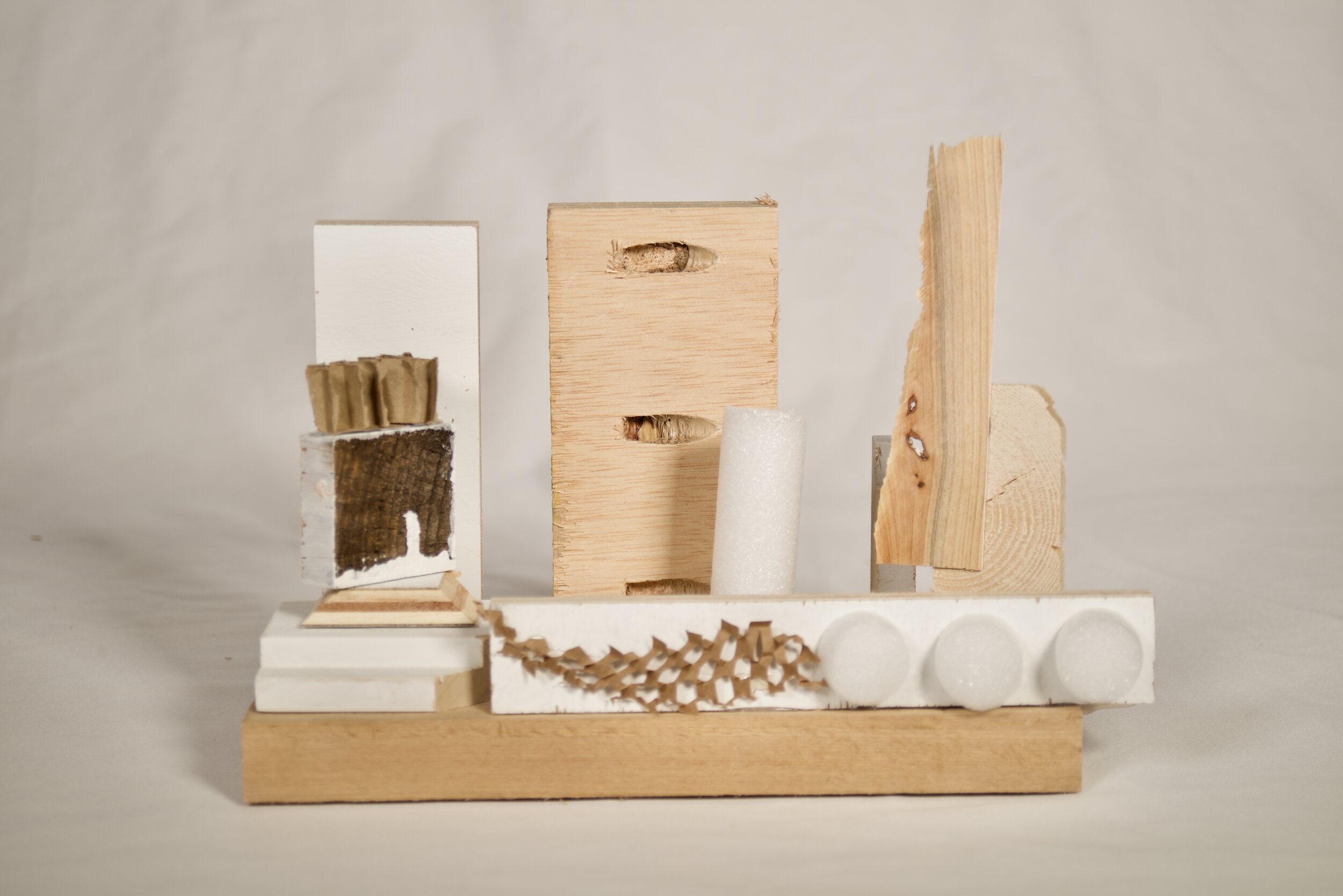
Personality trait sculpture using found objects during quarantine.
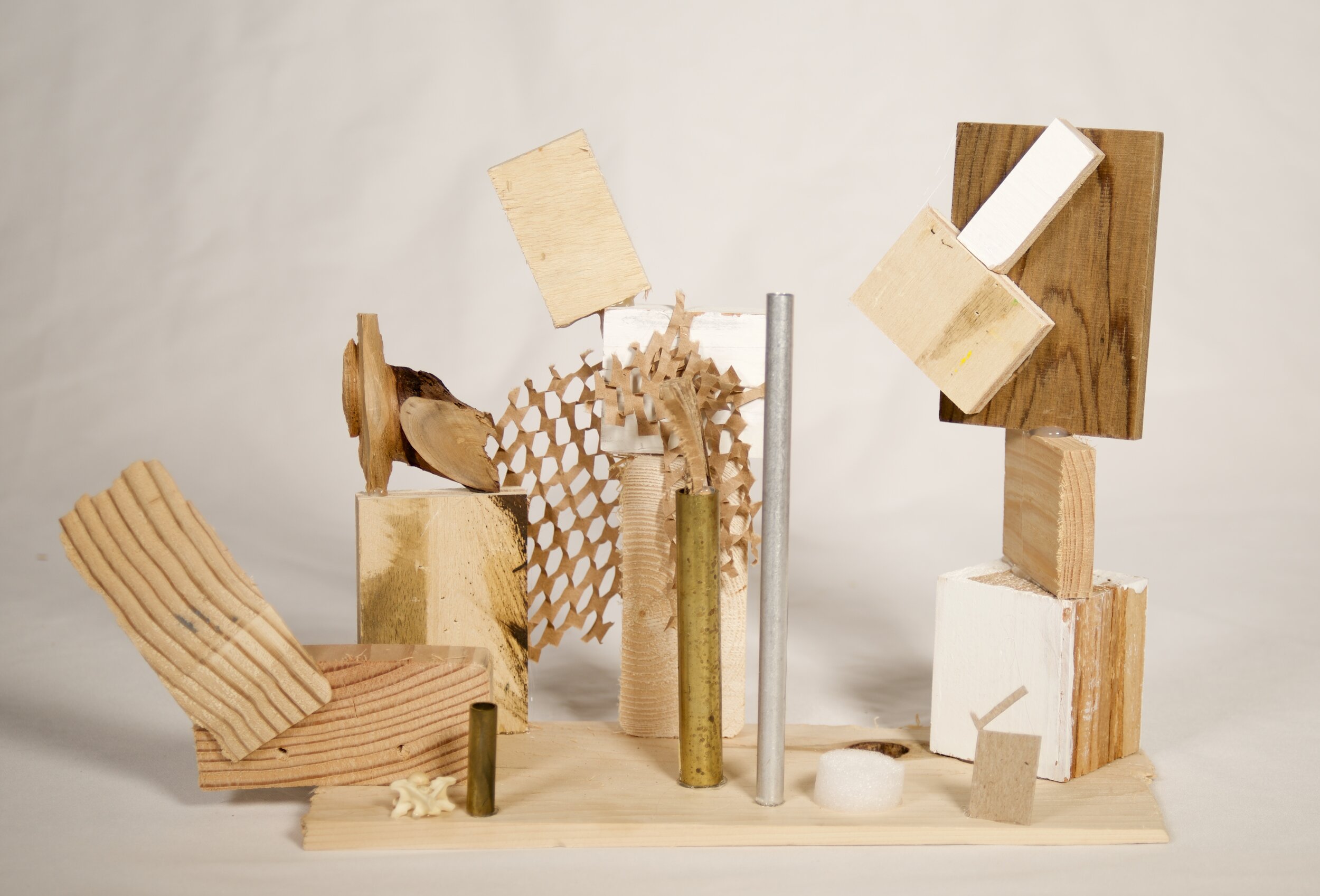
Personality sculpture made by student during quarantine using found materials.
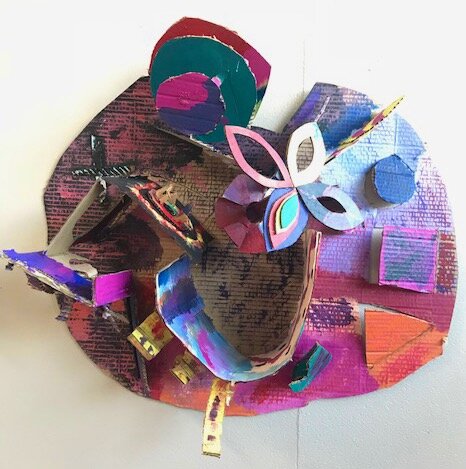
Cardboard exploration. Students are given materials and minimal direction early on in the sculpture course to encourage them to experiment and discover the potential of their materials.
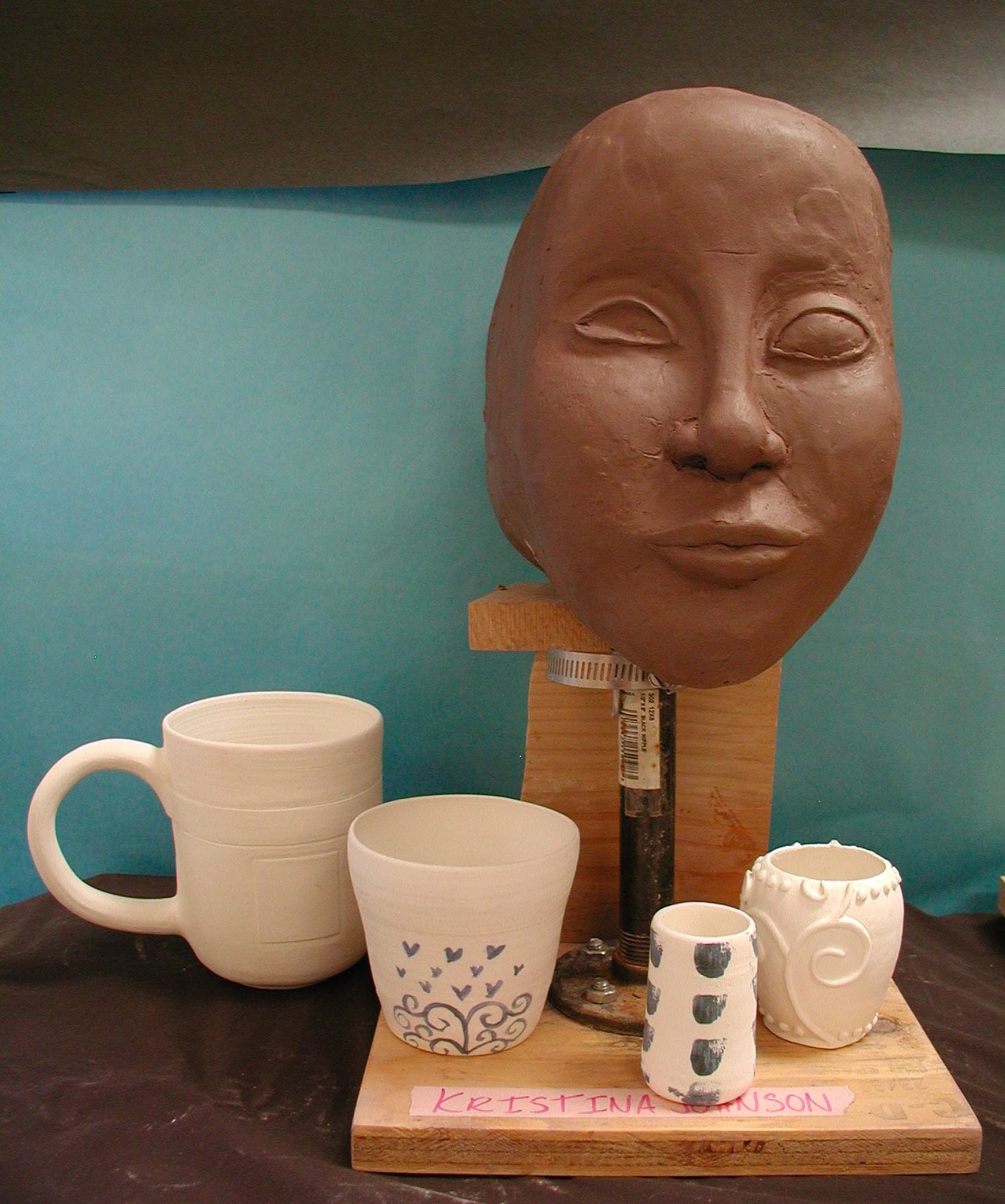
This collection of student works shows development of throwing skills and a self portrait bust in process.

Color and mark investigation using broken ceramic wares to create a mosaic.
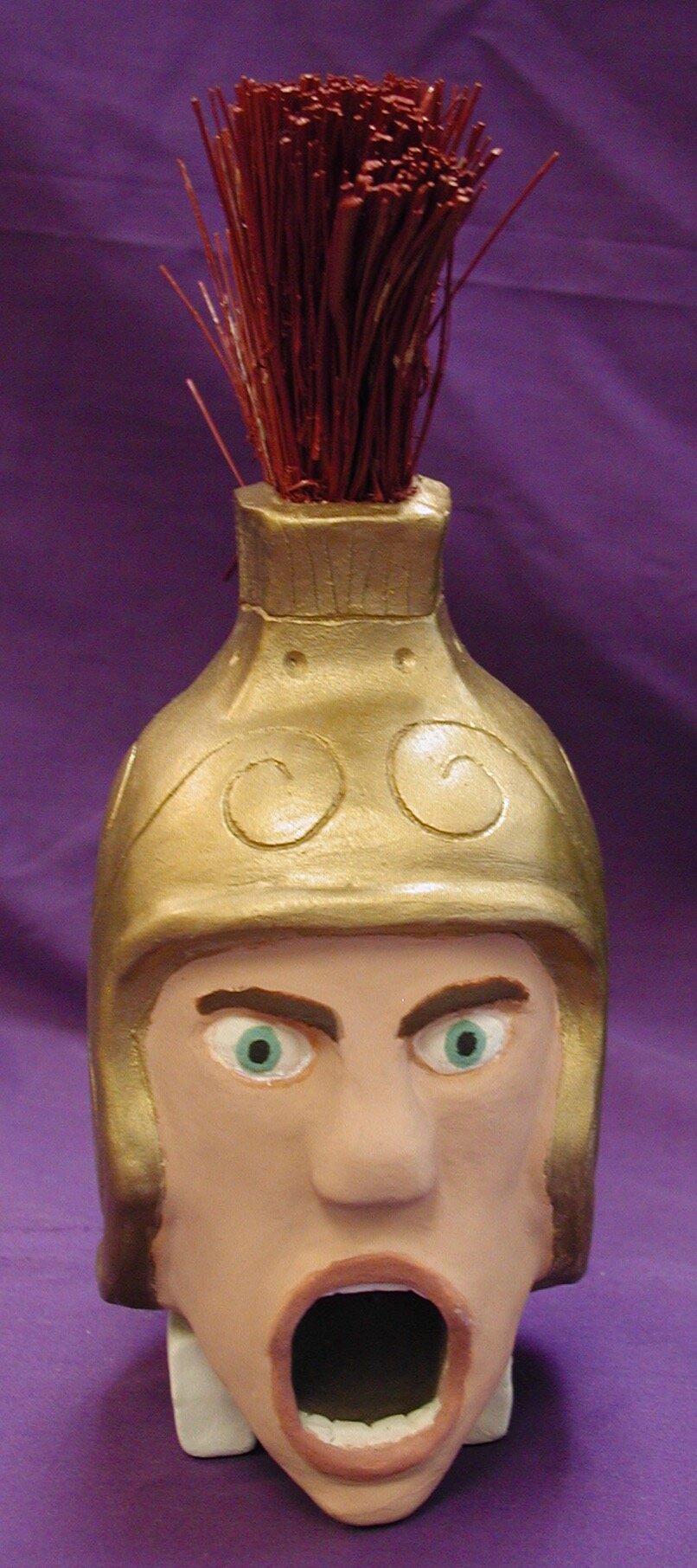
Students study a variety of rattles to understand the purposes served by the objects at different points in time in different cultures. They design a rattle for a specific purpose, person, or situation. This ceramic rattle was built using pinch and coil techniques. The student finished the work with underglazes and ceramic paint, adding altered broom bristles to complete the helmet.

Ceramic rattle built using pinch and coil techniques. Student finished the work with glazes.

Ceramic rattle built using pinch and coil techniques. Student finished the work with underglazes and ceramic paint, adding a foil surround and sign announcing “I Come in PEACE!”

Coil pot with sgraffito design. The opposite side shows the elephant out of the cage.
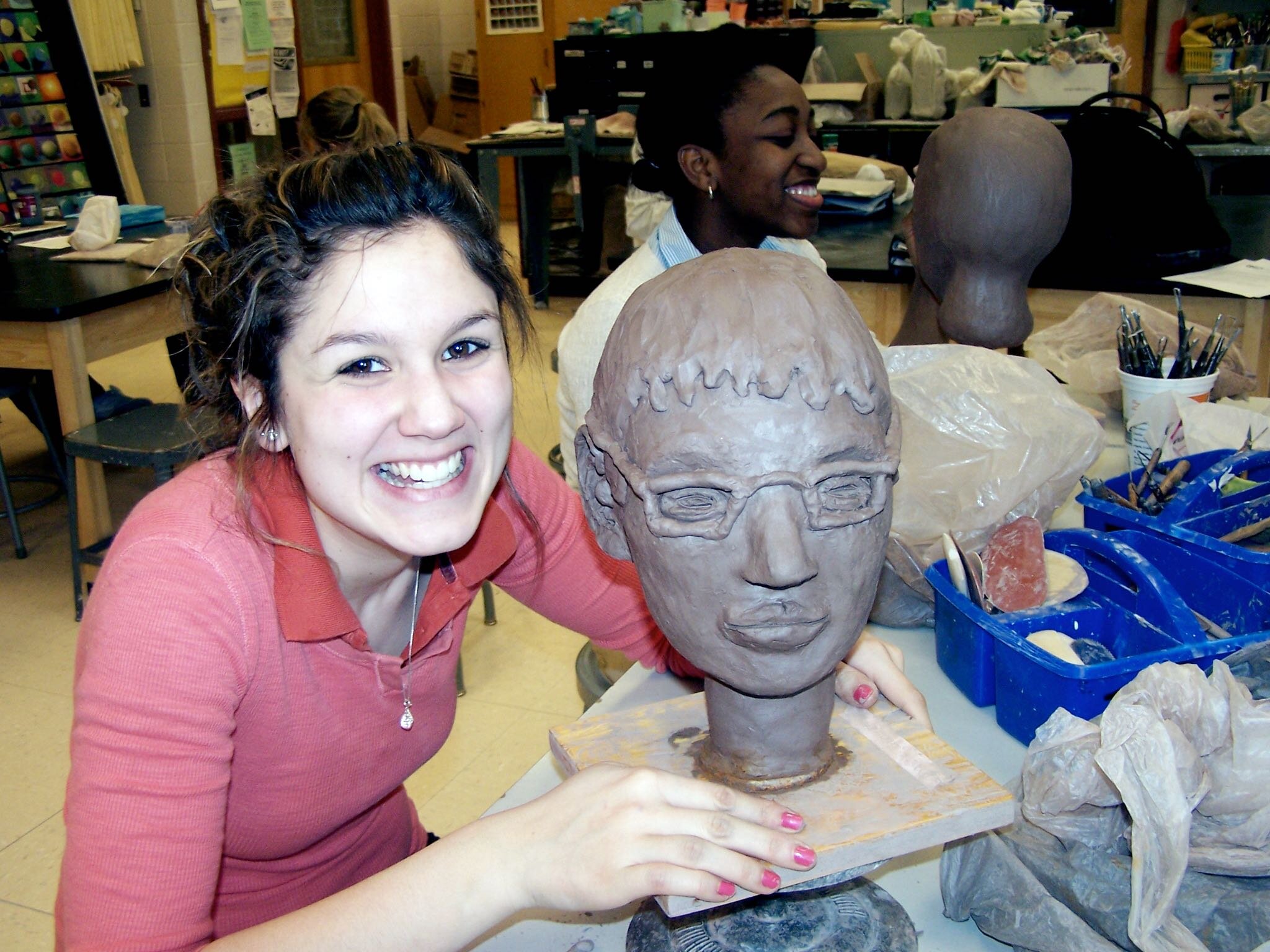
Students were given the option of working from a model or creating a self portrait bust.
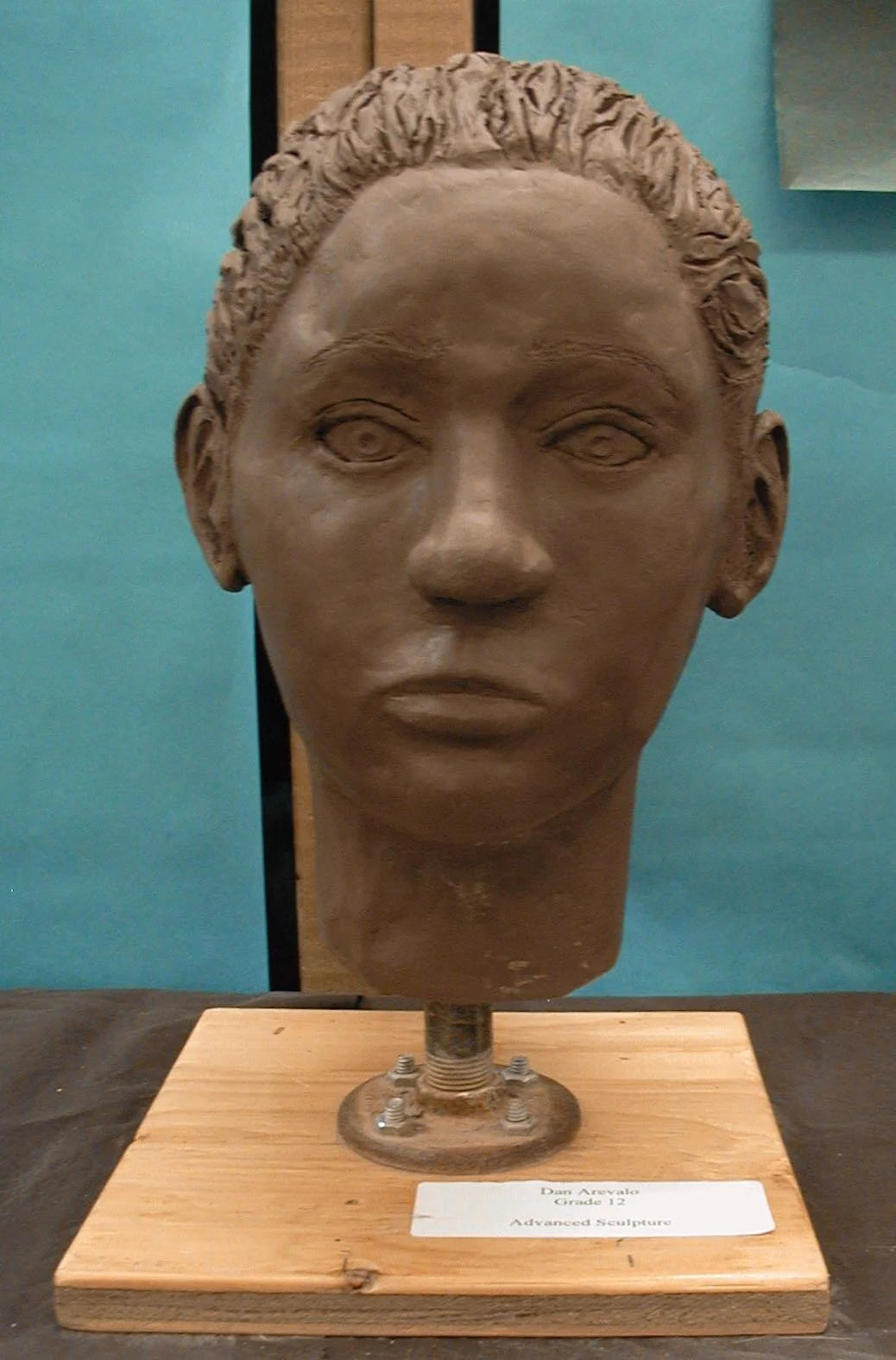
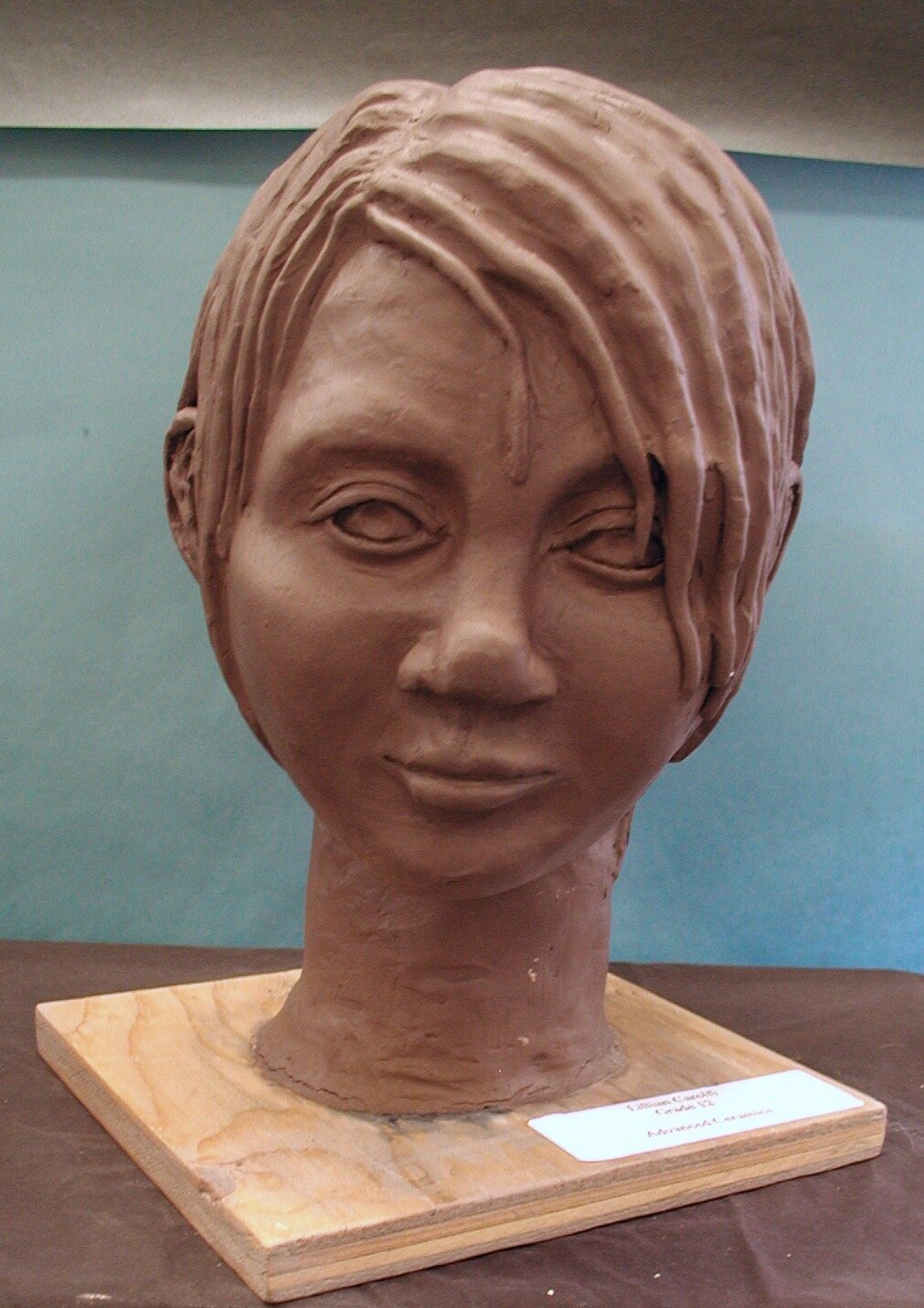
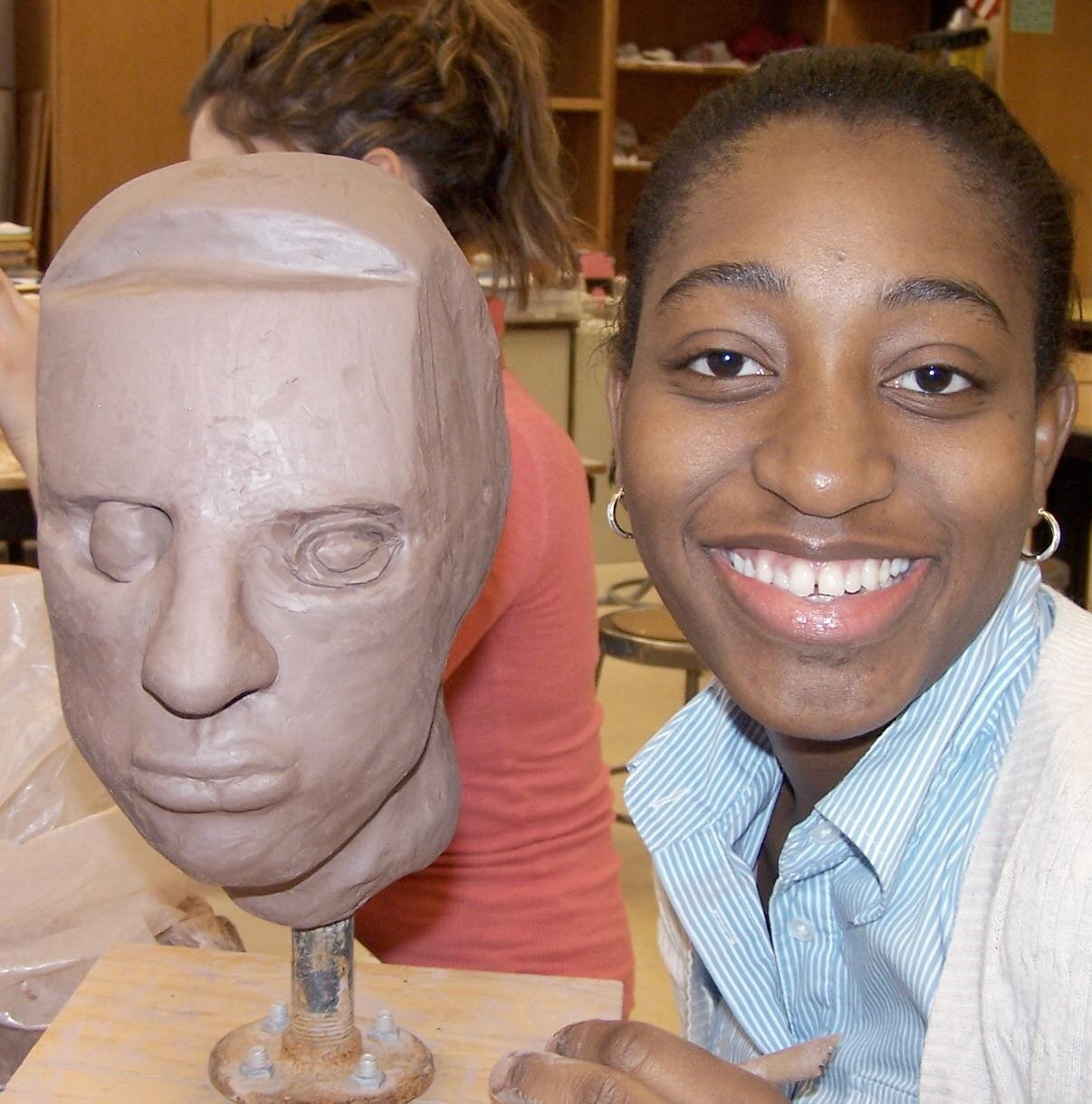

Consideration for visual balance as a factor in how the 3-dimensional object engages with the surface is solved by the addition of a trivet.

A more advanced project, students are challenged to make a teapot. Decisions about the relationship between form and function are given to the student. This teapot features a removable thumb as a lid and uses a finger as a spout.


One of our most important rules in the studio is to never touch another artist’s work without permission from the artist. For this advanced project students take on the challenge of creating something the viewer will feel compelled to touch, or that is only truly “completed” through interaction with the viewer.

Students translated a 2-dimensional illustration into a 3-dimensional artwork.

Slip cast and altered. Students were tasked with combining and altering multiple forms produced using manufactured molds. This project was originally developed with a student teacher.

Slip cast and altered using a cat and a deer mold.

Screenshot from a 2016 Independent Study project. The student studied the movements of her new puppy to create a short animation of the puppy chasing a ball in Maya.

Please click the play arrow to view this frame by frame hand drawn animation.

This Freshman foundation design project begins as a traditional notan and ends in Photoshop.

Student AP concentration piece investigating identity through photography, digital design, and physical collage practices.

Student directed project using photography and digital collage to investigate denial.

Student AP concentration investigating light effects in digital photography with alterations in Photoshop.
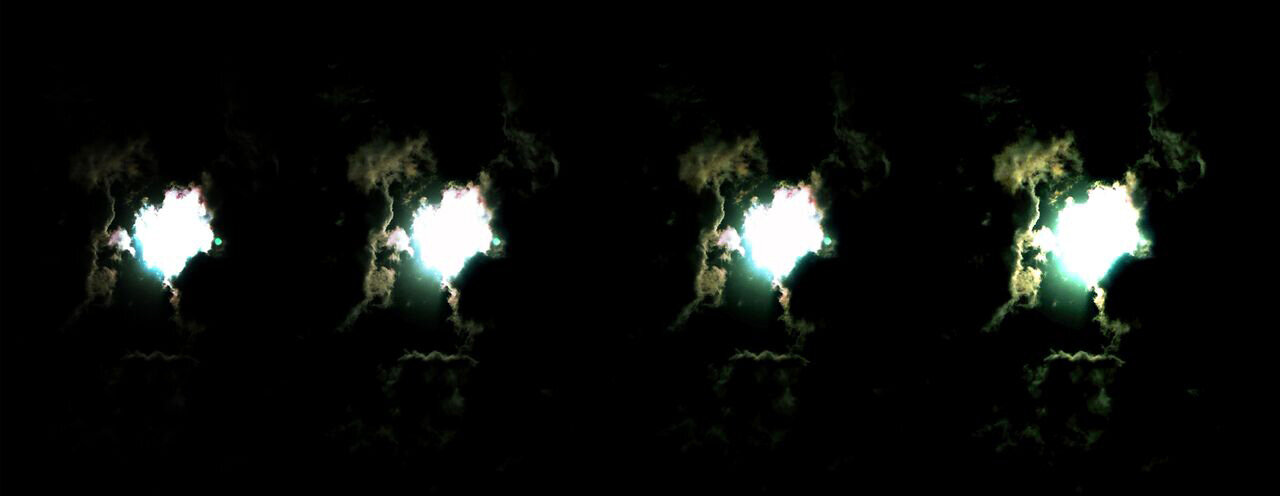
Student driven investigation into light using photography and Photophop.

Student AP concentration investigating the concept of decay through an iterative design process. Found imagery was cut, collaged and scanned into Photoshop where it was altered before it was printed to be cut, collaged and added to the original. This cycle was repeated again and again.

Student AP concentration creating visual representation of issues relating to world politics. Photography, digital design.

Student AP concentration creating visual representation of issues relating to world politics. Photography, digital design.

An investigation of visual balance using remnants from a photography class this developed from a sketchbook experiment into a larger work


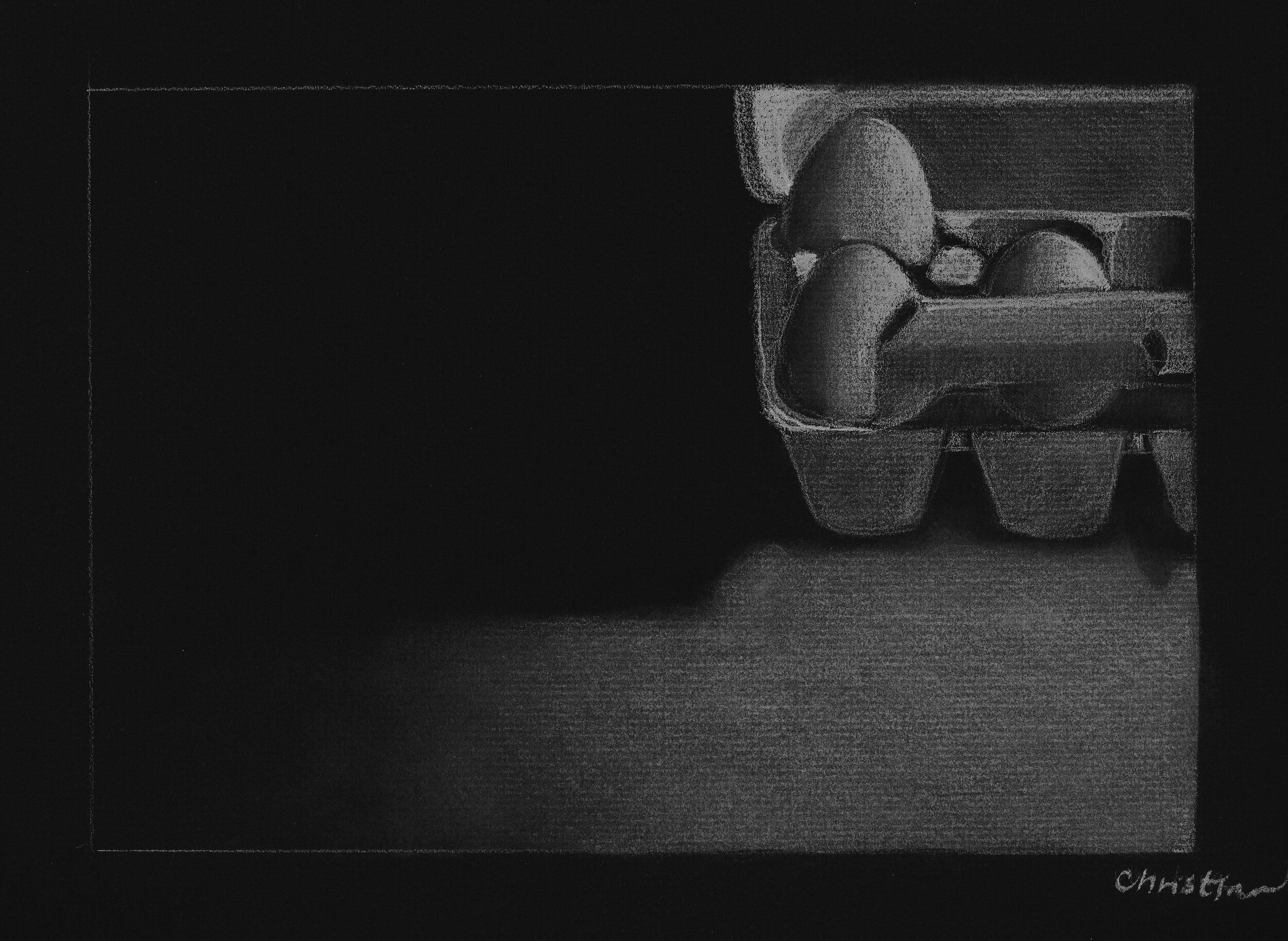
This white charcoal homework assignment follows experimentation in class and is among the few assignments I give that are entirely skill based.
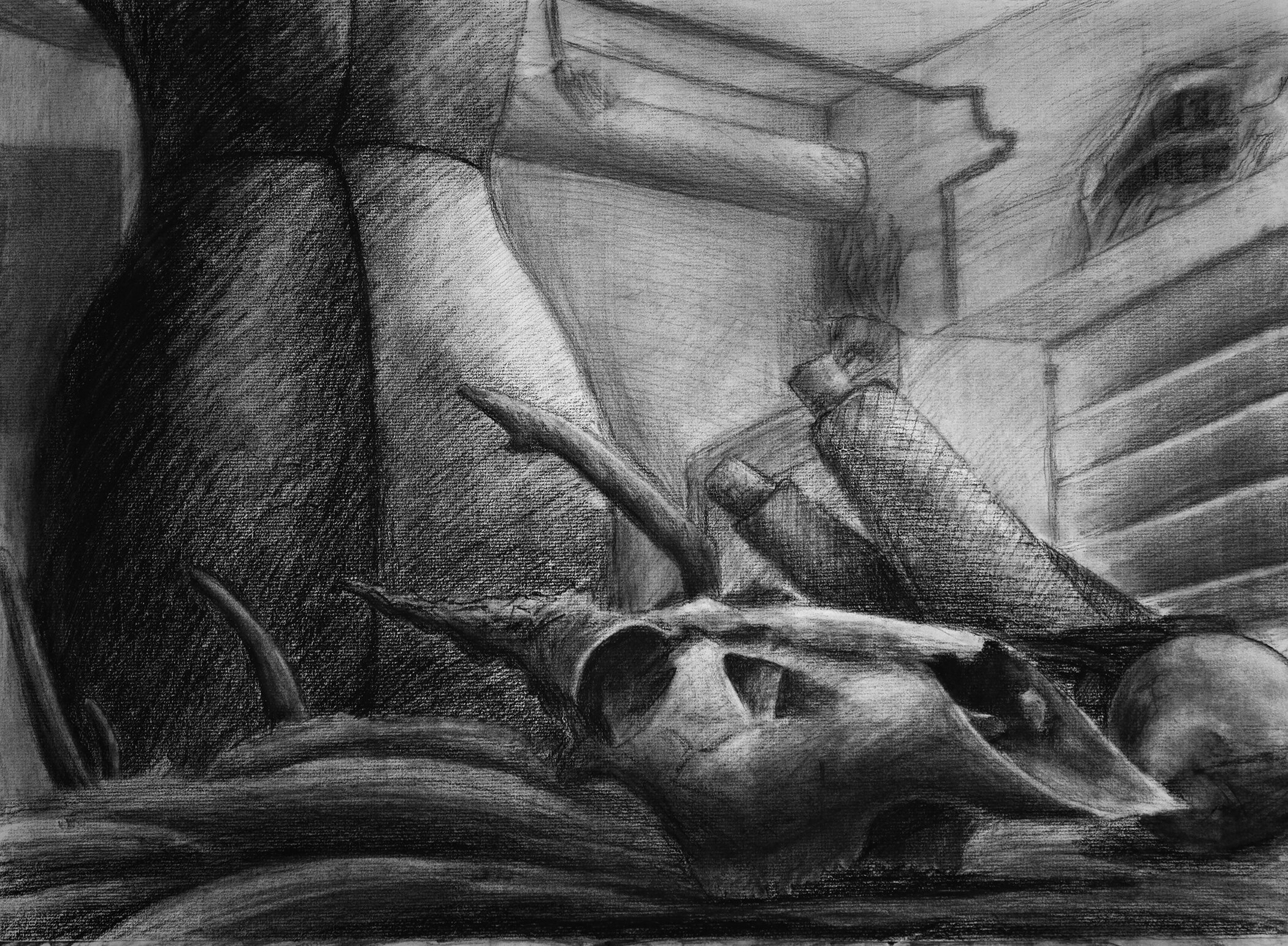
Even in early still life work students are encouraged to use formal choices to convey mood and emotions.

For this character portrait students considered how abstraction or alteration can push the narrative within their artwork. Characters were based on a combination of self portraits and automatic writing.

This homework assignment asks students to select a material we have used in the past and create a small work the actual size of something drawn from observation on campus. Students then leave their artworks on site, photograph the work and let me know where to see it. Students sometimes gift these works to other faculty who volunteer to allow their space to be used for the “scavenger hunt”.
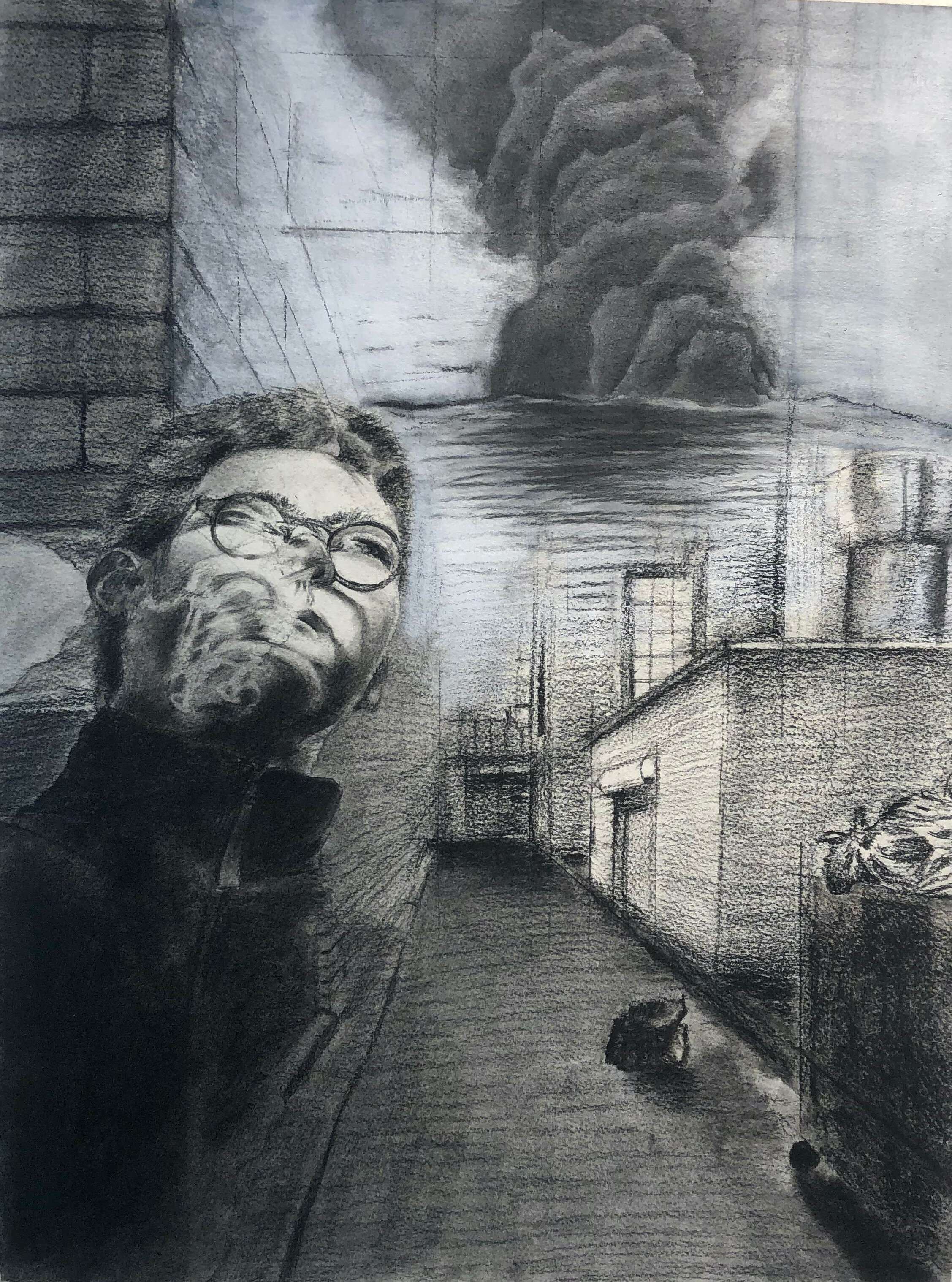
Advanced students are given a variety of materials to use to investigate tone and mark while simultaneously developing personalized subject matter that engage the Post Modern Principles.

This student combines two of her favorite things to create an odd but highly personal juxtaposition.

The Shipley Development Office sponsors a “secret garden” tour annually. Students produce pen and ink drawing based on provided photographs for consideration for the office to use as the invitation. This follows a unit on mark making and texture, and precedes a unit on illustration in which students select their own text to illustrate. This is one student’s secret garden entry.


Six drawings by a single student relating to Invisible Cities and personal experiences relating to the psychology of place.

As a senior project one of my students took on the task of drawing all 100 of her classmates to display for her senior art show. This and the next three images are a sampling of her drawings.




Limited palette portrait assignment in which color choices are used to amplify the sitter’s expression. Students directed their classmates to pose, took reference photos and selected the material of their choice for this work.

Taking the limited palette portrait further, this student researched flower symbology in the Victorian tradition and uses the choice of prop to quote Hamlet. The result is a portrait that points to this sitter’s particular fondness for a dramatically told morose tale.


Over the summer I ask my upper level art student to produce 3-5 artworks that investigate ideas and materials that they have not had ample time to explore in class. Experimentation is expected.


By senior year students are using their sketchbooks as a repository for brainstorming. Process documentation is a part of the way students show growth and development of creative practice.

Some students prefer digital resources for idea development. This student has used Photoshop to explore composition ideas that are later used for a painting.
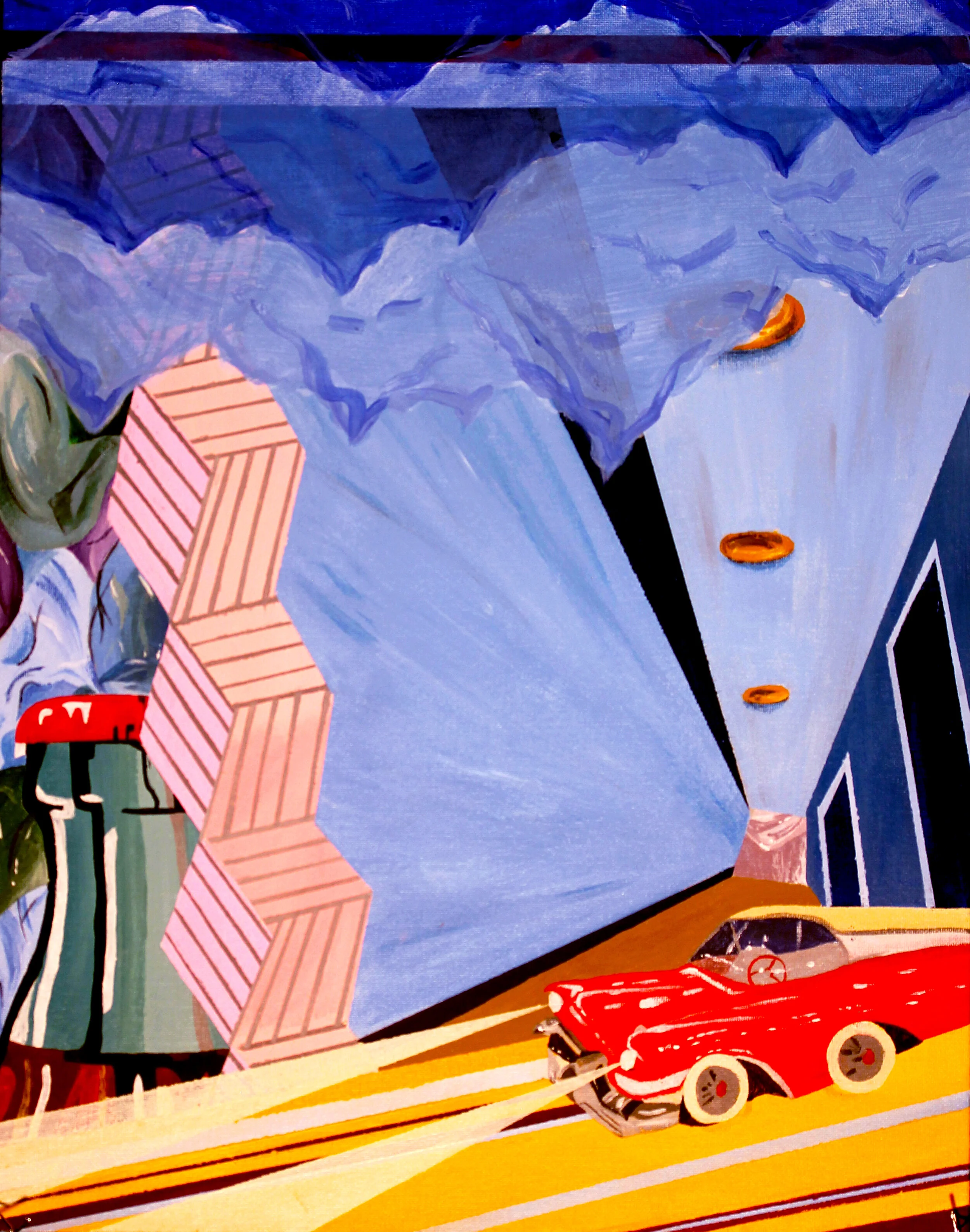
This is the painting resulting from the Photoshop image in the prior slide.

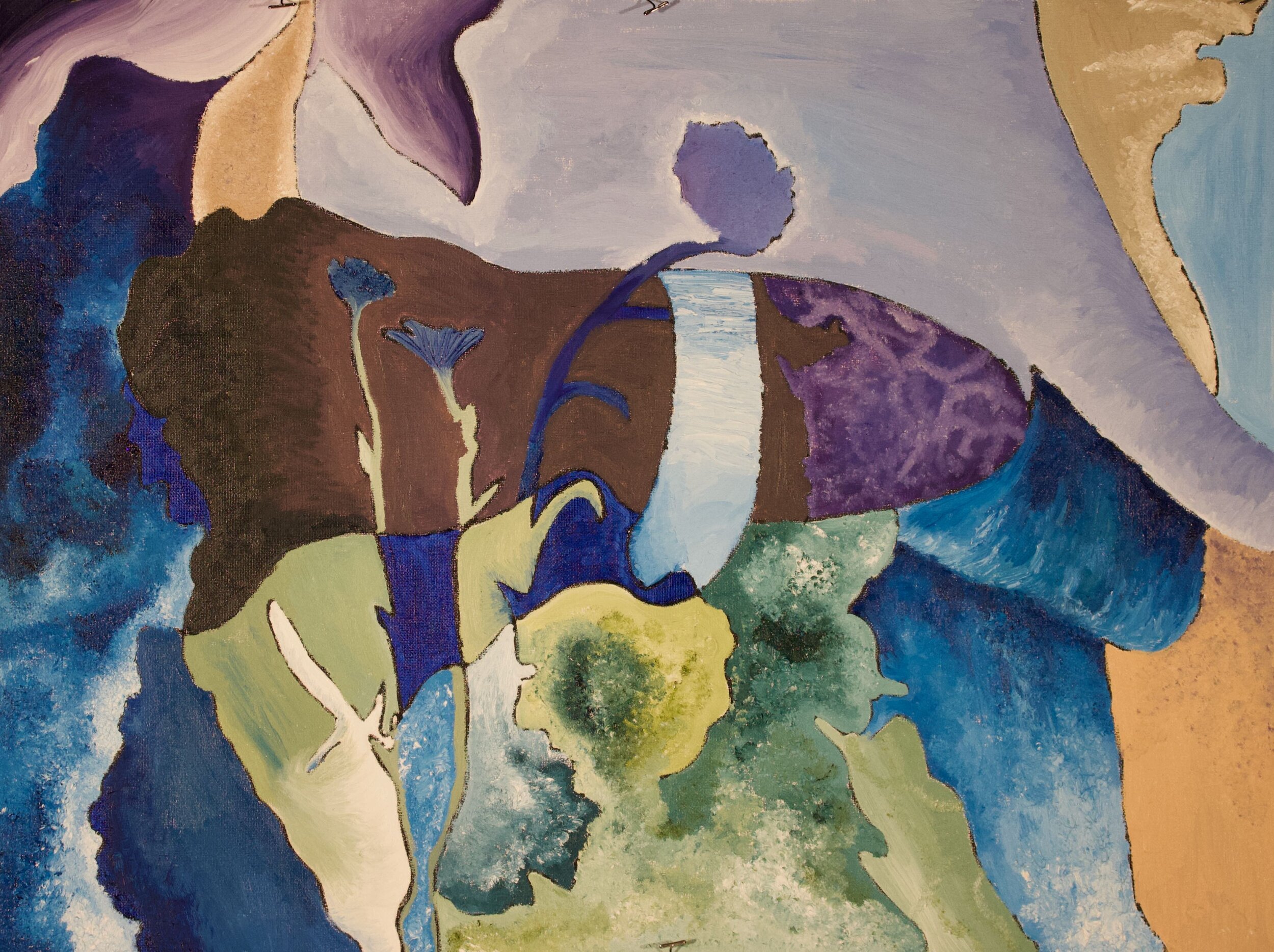

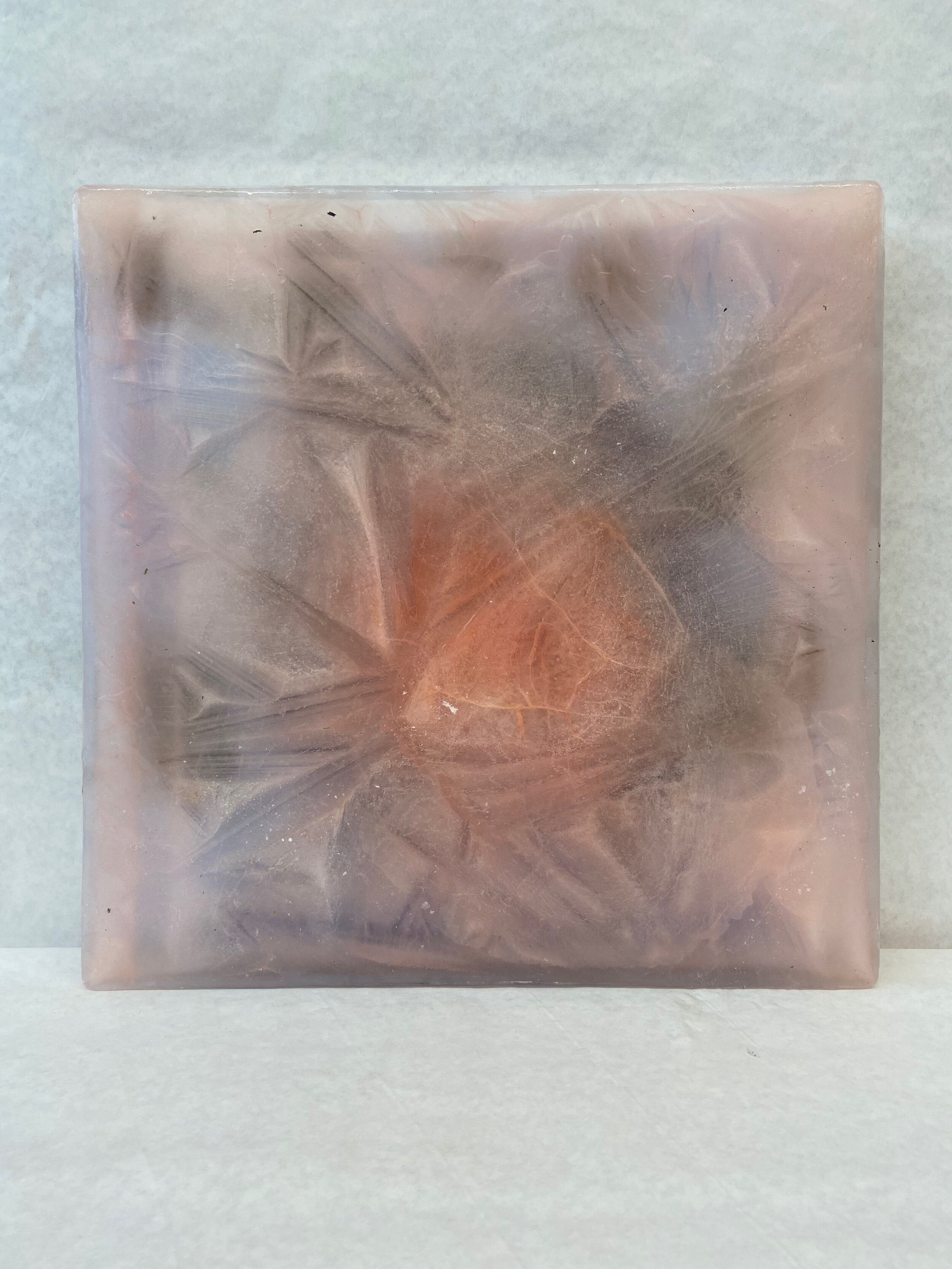







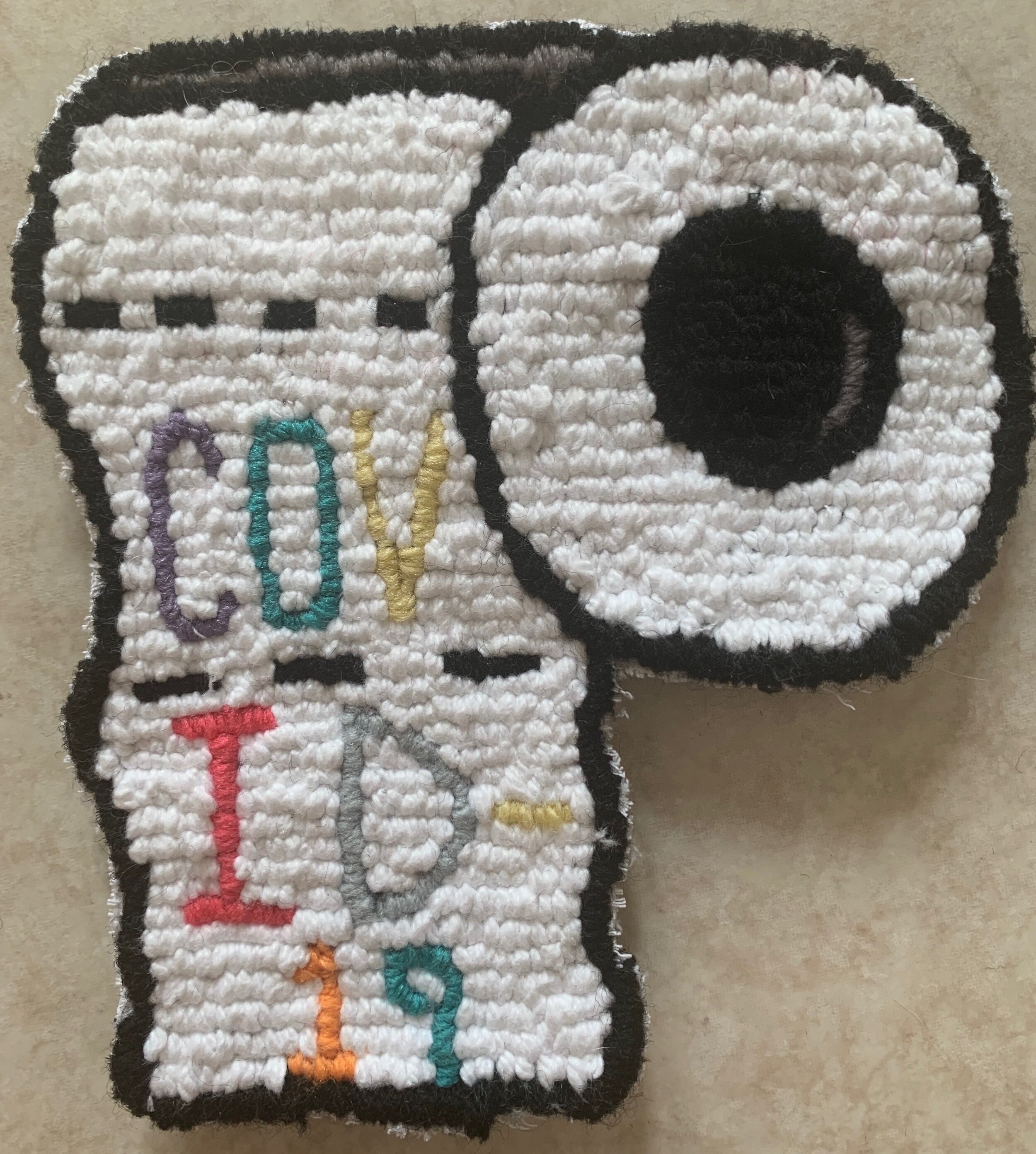








































































Recycled materials were used for all parts of this original sneaker design. Student patterned these sneakers off of a pair she owned and altered the pattern to fit her design vision. All materials used are recycled packaging. Shoes are twice the size of a wearable sneakers.
A sculpture student’s paper potential project examining design principles and experiencing the shift from 2-D to 3-D
Paper, wood, and LED light lantern made as a material exploration by a sculpture student during quarantine.
Paper, wood, and LED light lantern made as a material exploration by a sculpture student during quarantine.
Personality trait sculpture using found objects during quarantine.
Personality sculpture made by student during quarantine using found materials.
Cardboard exploration. Students are given materials and minimal direction early on in the sculpture course to encourage them to experiment and discover the potential of their materials.
This collection of student works shows development of throwing skills and a self portrait bust in process.
Color and mark investigation using broken ceramic wares to create a mosaic.
Students study a variety of rattles to understand the purposes served by the objects at different points in time in different cultures. They design a rattle for a specific purpose, person, or situation. This ceramic rattle was built using pinch and coil techniques. The student finished the work with underglazes and ceramic paint, adding altered broom bristles to complete the helmet.
Ceramic rattle built using pinch and coil techniques. Student finished the work with glazes.
Ceramic rattle built using pinch and coil techniques. Student finished the work with underglazes and ceramic paint, adding a foil surround and sign announcing “I Come in PEACE!”
Coil pot with sgraffito design. The opposite side shows the elephant out of the cage.
Students were given the option of working from a model or creating a self portrait bust.
Consideration for visual balance as a factor in how the 3-dimensional object engages with the surface is solved by the addition of a trivet.
A more advanced project, students are challenged to make a teapot. Decisions about the relationship between form and function are given to the student. This teapot features a removable thumb as a lid and uses a finger as a spout.
One of our most important rules in the studio is to never touch another artist’s work without permission from the artist. For this advanced project students take on the challenge of creating something the viewer will feel compelled to touch, or that is only truly “completed” through interaction with the viewer.
Students translated a 2-dimensional illustration into a 3-dimensional artwork.
Slip cast and altered. Students were tasked with combining and altering multiple forms produced using manufactured molds. This project was originally developed with a student teacher.
Slip cast and altered using a cat and a deer mold.
Screenshot from a 2016 Independent Study project. The student studied the movements of her new puppy to create a short animation of the puppy chasing a ball in Maya.
Please click the play arrow to view this frame by frame hand drawn animation.
This Freshman foundation design project begins as a traditional notan and ends in Photoshop.
Student AP concentration piece investigating identity through photography, digital design, and physical collage practices.
Student directed project using photography and digital collage to investigate denial.
Student AP concentration investigating light effects in digital photography with alterations in Photoshop.
Student driven investigation into light using photography and Photophop.
Student AP concentration investigating the concept of decay through an iterative design process. Found imagery was cut, collaged and scanned into Photoshop where it was altered before it was printed to be cut, collaged and added to the original. This cycle was repeated again and again.
Student AP concentration creating visual representation of issues relating to world politics. Photography, digital design.
Student AP concentration creating visual representation of issues relating to world politics. Photography, digital design.
An investigation of visual balance using remnants from a photography class this developed from a sketchbook experiment into a larger work
This white charcoal homework assignment follows experimentation in class and is among the few assignments I give that are entirely skill based.
Even in early still life work students are encouraged to use formal choices to convey mood and emotions.
For this character portrait students considered how abstraction or alteration can push the narrative within their artwork. Characters were based on a combination of self portraits and automatic writing.
This homework assignment asks students to select a material we have used in the past and create a small work the actual size of something drawn from observation on campus. Students then leave their artworks on site, photograph the work and let me know where to see it. Students sometimes gift these works to other faculty who volunteer to allow their space to be used for the “scavenger hunt”.
Advanced students are given a variety of materials to use to investigate tone and mark while simultaneously developing personalized subject matter that engage the Post Modern Principles.
This student combines two of her favorite things to create an odd but highly personal juxtaposition.
The Shipley Development Office sponsors a “secret garden” tour annually. Students produce pen and ink drawing based on provided photographs for consideration for the office to use as the invitation. This follows a unit on mark making and texture, and precedes a unit on illustration in which students select their own text to illustrate. This is one student’s secret garden entry.
Six drawings by a single student relating to Invisible Cities and personal experiences relating to the psychology of place.
As a senior project one of my students took on the task of drawing all 100 of her classmates to display for her senior art show. This and the next three images are a sampling of her drawings.
Limited palette portrait assignment in which color choices are used to amplify the sitter’s expression. Students directed their classmates to pose, took reference photos and selected the material of their choice for this work.
Taking the limited palette portrait further, this student researched flower symbology in the Victorian tradition and uses the choice of prop to quote Hamlet. The result is a portrait that points to this sitter’s particular fondness for a dramatically told morose tale.
Over the summer I ask my upper level art student to produce 3-5 artworks that investigate ideas and materials that they have not had ample time to explore in class. Experimentation is expected.
By senior year students are using their sketchbooks as a repository for brainstorming. Process documentation is a part of the way students show growth and development of creative practice.
Some students prefer digital resources for idea development. This student has used Photoshop to explore composition ideas that are later used for a painting.
This is the painting resulting from the Photoshop image in the prior slide.